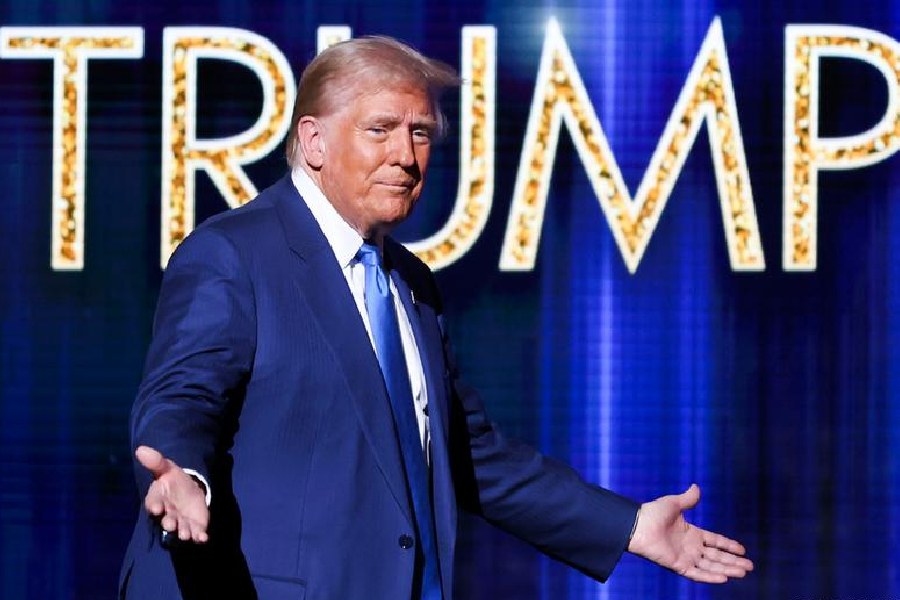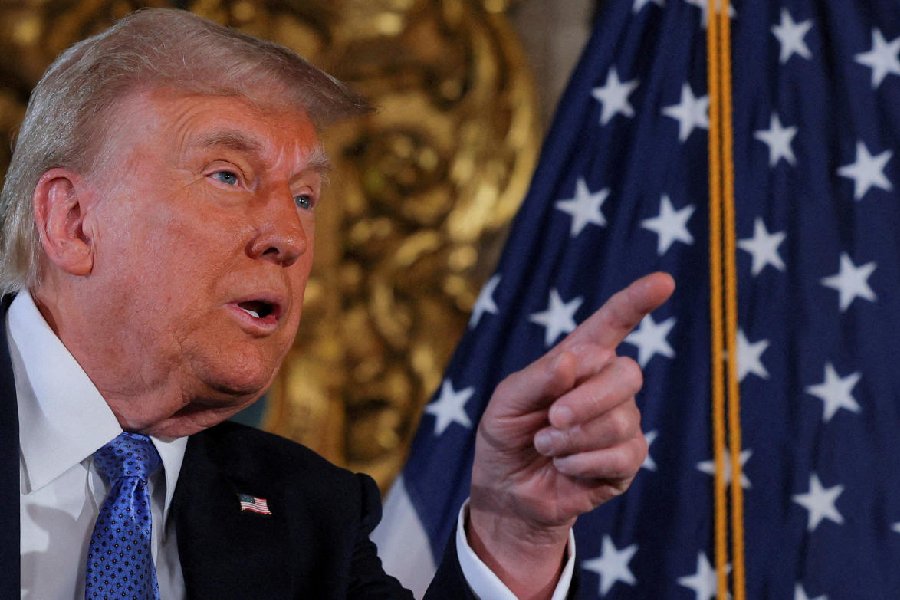Donald Trump isn't even president yet, and already there have been a number of controversies surrounding his incoming administration. Several of the people he has picked to be in his Cabinet and to serve in other important positions triggered heated discussion on Capitol Hill as well as in the US media.
In November, Trump's first nominee for Attorney General, Matt Gaetz, withdrew after his nomination was followed by outrage and disbelief. Media reported that Donald Trump had told Gaetz he couldn't shore up enough votes for him to be confirmed in the Senate. Not a surprise, considering that Gaetz had alienated even some Republicans with political attacks — and had been investigated because of alleged sexual encounters with a minor.
Critics say that some Cabinet members weren't picked for their stellar qualifications but for their relationship with the president-elect.
"The Cabinet picks highlight the importance of loyalty to Trump, either previously or during the campaign," Michelle Egan, professor of politics, governance and economics at American University in Washington D.C., told DW via email.
Project 2025 — a right-wing conservative wish list
Several of Trump's Cabinet picks have connections to Project 2025, the ultra-conservative manifesto for the future of the United States published by the Heritage Foundation, a think tank based in Washington, D.C.
Aims detailed in Project 2025 include downsizing the Environmental Protection Agency (EPA) and cutting references to climate change from government documents, admitting fewer refugees and limiting abortion rights.
"The 900-page report sets out policy plans which are grounded in a very conservative social vision," Stormy-Annika Mildner, the executive director of the Aspen Institute Germany, a transatlantic think tank based in Berlin, wrote in an email to DW. "Many of the report's proposals aim to expand the power of the president."
During the 2024 US election campaign, Donald Trump had distanced himself from the right-wing wish list. "I know nothing about Project 2025," he posted on his social media platform, Truth Social. "I disagree with some of the things they're saying and some of the things they're saying are absolutely ridiculous and abysmal."
After his election win, Trump's team continued to stress the distance between the incoming president and the hard-right conservative manifesto.
"President Trump never had anything to do with Project 2025," Trump's incoming press secretary Karoline Leavitt was quoted by news agency AP as saying. "All of President Trumps' Cabinet nominees and appointments are whole-heartedly committed to President Trump’s agenda, not the agenda of outside groups."
But the fact remains that several people involved with the project are on Trump's staff list for his new administration.
Project 2025 contributors among Trump picks for top positions
Russ Vought is Trump's pick for the director of the Office of Management and Budget (OMB), a position that would have to be confirmed by the Senate ― if Trump were to go through that process. (More on that in a bit.)
The OMB director is in charge of preparing the president's proposed budget and generally implementing the administration’s agenda across agencies.
Vought, who was OMB director in the final months of the first Trump administration and could potentially end up in this influential role again, wrote a Project 2025 chapter on presidential authority, which he believes should be increased. Vought sees his role in the administration as crucial for that to happen.
"The Director must view his job as the best, most comprehensive approximation of the President's mind," Vought wrote. The Office of Management and Budget according to him "is a President's air-traffic control system" and should be "involved in all aspects of the White House policy process."
Ideally, Vought continued, it would become "powerful enough to override implementing agencies' bureaucracies."
He is not the only Project 2025 author who could soon be part of the US government if Trump has his way.
Brendan Carr was named by the president-elect to be the chair of the Federal Communications Commission, a position that requires no Senate confirmation.
Carr actually wrote the Project 2025 chapter on the FCC. In it, he calls for limiting the immunity technology platforms have from content posted by third parties. That means that YouTube, for example, could be held responsible for a video that was uploaded by a user and includes content that violates the law.
'High chances' of Trump implementing Project 2025 proposals
Other Project 2025 contributors Trump wants on his administration include press secretary Karoline Leavitt, who appeared in Project 2025 training videos for conservatives interested in jobs in a right-wing presidency, and Thomas Homan, Trump's future "border czar," who is listed as a Project 2025 contributor and was a visiting fellow at the Heritage Foundation.
With so many connections between Trump's future administration and the Project 2025 team, it seems unlikely that the incoming president doesn’t want to implement at least some of the right-wing policies mentioned in the manifesto.
"The chances are high that the Trump team will try to implement many of these proposals," said international economic relations specialist Mildner.
Could Trump circumvent Senate confirmation process?
Ambassadors, Cabinet secretaries and nominees for positions like Vought's normally need to be confirmed by the US Senate, where Republicans hold a small majority of 53 seats to the Democrats' 47.
There is, however, a way around this procedure.
Trump could make so-called "recess appointments," installing Cabinet members while Congress isn't in session. He has already called on Republicans to approve his unusual plan in a post on social media platform X.
"The discussion is whether the Senate will go on recess to allow the president to appoint his cabinet without being subject to Senate approval," Nolan McCarty, a professor of politics and public affairs at Princeton University, told DW shortly after Trump's election win.
"We've never really had a situation where recess appointments were used in such a large way. They're typically used for one or two appointments here and there, but to have an entire administration staffed by people with recess appointments would be concerning."













